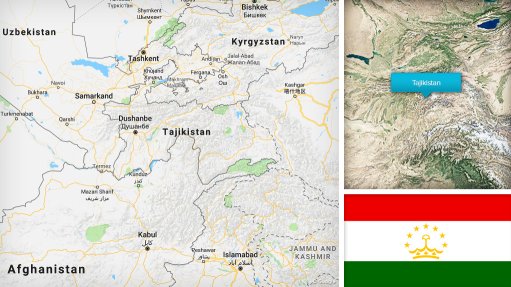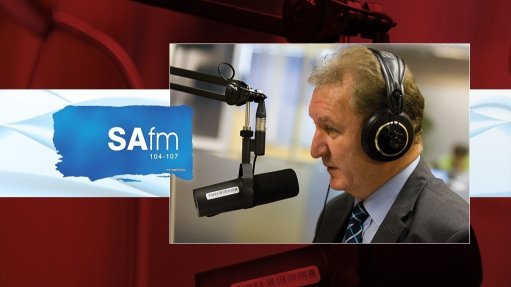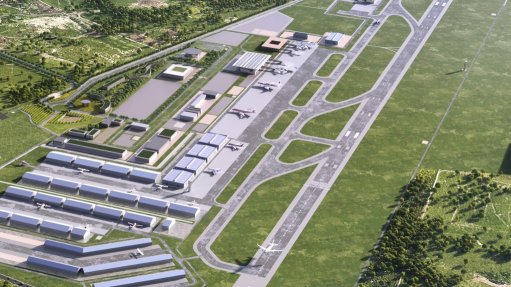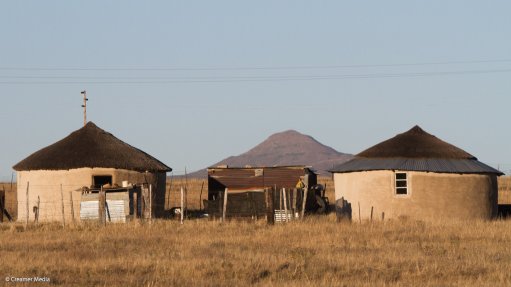Food distributor welcomes chicken import rebates but warns of supply chain issues
The International Trade Administration Commission of South Africa (Itac) confirmed on January 25 that it is lifting punitive tariffs on imported chicken in response to the impacts of the Highly Pathogenic Avian Influenza (HPAI), also known as bird flu, which has “ravaged” global and local poultry supplies.
“Heeding calls and warnings from importers and businesses such as Hume International regarding the serious consequences of the outbreak on the cost of chicken, Itac’s tariff rebate represents a welcome reprieve for consumers – especially low-income households,” says South African food distributor Hume International logistics and operations director Roy Thomas.
He notes that Statistics South Africa’s latest inflation figures reveal that, in 2023, the price of eggs increased by 38%, chicken giblets by 18.3%, fresh chicken portions by 14.6%, whole chicken by 8.4% and individual quick frozen portions by 6.4% – all above average inflation for the year.
“These price increases clearly reflect the ongoing impacts of bird flu both locally and abroad, in addition to the effect of new import tariffs implemented in August last year.
“The reality is that while local chicken producers remain hopeful of receiving government approval for a vaccine by the end of February, South Africa does not produce enough chicken to supply local demand. Imports, therefore, serve as an important complement and price regulator in the local market.”
He adds that South Africa’s food supply chain is facing various issues, including loadshedding and water shortages, which may contribute to higher prices for consumers.
He notes that loadshedding impacts on cold stores and creates challenges for food importers, forcing industry players to continuously ensure the stability of frozen food products.
Moreover, water shortages in the Eastern Cape, driven by drought and poor infrastructure, as well as ongoing delays and backlogs at ports, coupled with global shipping disruptions owing to the conflict in the Red Sea, further contribute to the industry's struggles.
“But loadshedding is just the start of the troubles. Many food importers are grappling with ongoing delays and backlogs at ports, and expect this to continue well into the first quarter of the year. This has a very real and direct impact on the industry’s ability to deliver products in a timeous and cost-effective manner.”
Hence, Thomas contends that, with the pressures being brought to bear upon food prices, the import tariff rebate on chicken offers “real cause for optimism”.
To this end, many of Hume’s products are largely geared towards lower-income households, who are price-sensitive and rely on the availability of cheaper protein such as chicken.
Thomas says this consumer base represents a large percentage of the South African market, and is the driving force behind the company’s dedication to eliminating – or at least mitigating – these “destructive price forces”.
He adds, however, that bureaucratic backlogs further represent a significant hurdle.
“Faced with these risks, businesses involved in food supply chains cannot sit by complacently as a crisis looms. We must be proactive and agile in the face of new challenges, drawing on lessons from the pandemic.
"We also hope that government will hear the clarion call, and assist both food producers and importers by providing mechanisms and legal provisions that will speed the passage of food from our congested ports through to retailers. Without urgent attention and a collective effort to address these problems, many more cupboards could soon run bare.”
The Association of Meat Importers and Exporters of Southern Africa (AMIE) has also welcomed the decision by Itac to implement rebates on boneless and bone-in chicken cuts, saying the move will keep the price of chicken in check for consumers, especially for poor households that are struggling to afford this vital source of protein.
The decision follows the AMIE’s submission to Itac in November 2023, calling for rebates to be applied on imported chicken.
Imported chicken currently carries a duty of 62% for frozen bone-in, and 42% for boneless chicken, pieces. According to the AMIE, import duties are an extremely regressive form of tax, meaning that it impacts on consumers most directly.
“Government’s mandate is to act on behalf of its citizens, and this requires it to do all it can to ensure that the country is food secure, and that the poor are able to afford poultry. This decision demonstrates that the Minister is acutely aware of this,” says AMIE CEO Paul Matthew.
However, the South African Poultry Association argues that there is no rational argument for a rebate on tariffs, adding that there was no poultry meat shortage over the festive season and that the supply chain is well stocked.
“The implementation of a rebate and any permits issued under this will be the single most damaging action to a poultry industry already on its knees.
“We will be dismayed if government even considers applications, never mind approves permits, for poultry imports under the rebates,” it says.
ITAC COMMENTS
In Government Gazette No 49399 published on October 2 2023, Trade, Industry and Competition Minister Ebrahim Patel directed Itac to consider the creation of a temporary rebate provision on meat and edible offal, fresh, chilled or frozen of fowls of the species Gallus Domesticus classifiable under HS0207.1.
The directive followed the Department of Agriculture, Land Reform and Rural Development’s (DALRRD’s) confirmation of the outbreak of HPAI, which forced the culling of millions of fowls at great lost to key players across the poultry value chain.
During its investigation, the commission considered the information at its disposal including comments received from interested parties, to arrive at its recommendation.
The commission found that, inter alia, there is an expected shortage of poultry products in 2023 as a result of HPAI.
However, this shortage could be addressed without necessitating the implementation of a temporary rebate by using domestic producers’ existing inventory stock. The balance could be addressed by imports.
To determine the estimated shortage of poultry products for this year, the commission used a structured methodology, encompassing a comprehensive approach to forecast broiler production figures.
Consequently, the commission estimated a possible shortage of about 172 000 t for this year.
Information at Itac’s disposal indicated that an acceptable balance could be found in implementing a tariff rate quota system.
It was also determined that the issuance of permits in terms of the rebate provision, could be discontinued at any time through a publication in the Government Gazette, contingent upon an assessment by DALRRD in consultation with the National Agricultural Marketing Council of the performance of domestic producers' production and their recovery from the HPAI outbreak.
Article Enquiry
Email Article
Save Article
Feedback
To advertise email advertising@creamermedia.co.za or click here
Comments
Press Office
Announcements
What's On
Subscribe to improve your user experience...
Option 1 (equivalent of R125 a month):
Receive a weekly copy of Creamer Media's Engineering News & Mining Weekly magazine
(print copy for those in South Africa and e-magazine for those outside of South Africa)
Receive daily email newsletters
Access to full search results
Access archive of magazine back copies
Access to Projects in Progress
Access to ONE Research Report of your choice in PDF format
Option 2 (equivalent of R375 a month):
All benefits from Option 1
PLUS
Access to Creamer Media's Research Channel Africa for ALL Research Reports, in PDF format, on various industrial and mining sectors
including Electricity; Water; Energy Transition; Hydrogen; Roads, Rail and Ports; Coal; Gold; Platinum; Battery Metals; etc.
Already a subscriber?
Forgotten your password?
Receive weekly copy of Creamer Media's Engineering News & Mining Weekly magazine (print copy for those in South Africa and e-magazine for those outside of South Africa)
➕
Recieve daily email newsletters
➕
Access to full search results
➕
Access archive of magazine back copies
➕
Access to Projects in Progress
➕
Access to ONE Research Report of your choice in PDF format
RESEARCH CHANNEL AFRICA
R4500 (equivalent of R375 a month)
SUBSCRIBEAll benefits from Option 1
➕
Access to Creamer Media's Research Channel Africa for ALL Research Reports on various industrial and mining sectors, in PDF format, including on:
Electricity
➕
Water
➕
Energy Transition
➕
Hydrogen
➕
Roads, Rail and Ports
➕
Coal
➕
Gold
➕
Platinum
➕
Battery Metals
➕
etc.
Receive all benefits from Option 1 or Option 2 delivered to numerous people at your company
➕
Multiple User names and Passwords for simultaneous log-ins
➕
Intranet integration access to all in your organisation





















